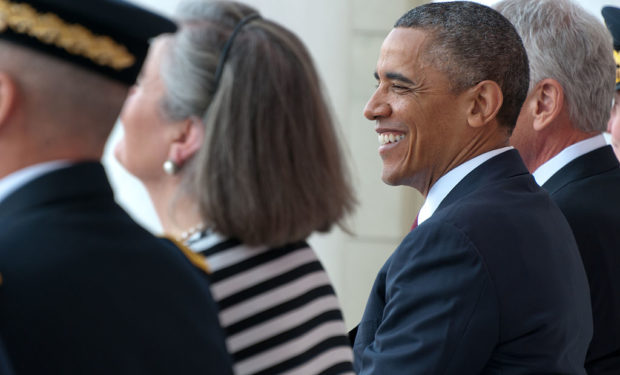The chief strategy of the so-called “Trump resistance” by Democrats is a return to that old adage they seemed to forgot about in the borderless age of Twitter: “all politics is local.” One of the teaching moments in Hillary Clinton‘s defeat was the realization that the political ground Democrats had routinely ceded on city councils, state legislatures, and mayor’s offices around the country was worth fighting for. Trump’s 2016 victory did another thing besides drive this point home for Dems; it also invigorated local political participation, especially among women. As a result, a Democratic Congressional Campaign Committee recently reported that “a lot of people are finally saying yes” to running for office.
This is what happens when the people vote. Congrats @RalphNortham and @PhilMurphyNJ . And congratulations to all the victors in state legislative, county and mayors’ races. Every office in a democracy counts!
— Barack Obama (@BarackObama) November 8, 2017
When Democrats won contested races for Governor of Virginia and Governor of New Jersey on November 7, the Dems were pleased, of course. But it’s the smaller office wins in local government that are being taken as a sign that Trumpism may only work for one candidate: Trump himself. Democrats running for less glamorous political positions than governor won victories too, showing, perhaps, that populism — looking out for ordinary citizens — can be a Democrat thing once again if Dems can compete for the mayor’s offices, city councils, and county executive seats. Barack Obama tweeted what must become the rallying cry and, importantly, the continual pursuit by Democrats if they hope to reverse the Republican tide: “Congratulations to all the victors in state legislative, county and mayors’ races,” he wrote. “Every office in a democracy counts!” That’s the Democrats’ Trump resistance strategy in a nutshell — local grassroots city council populism.
